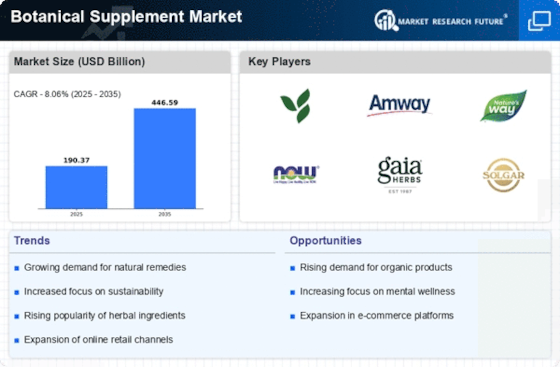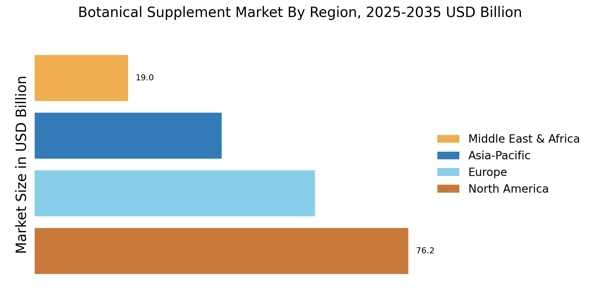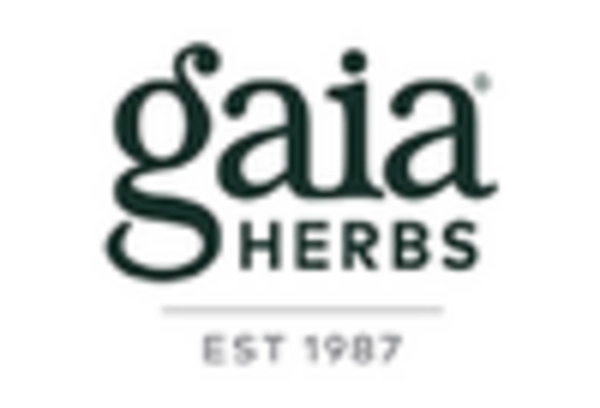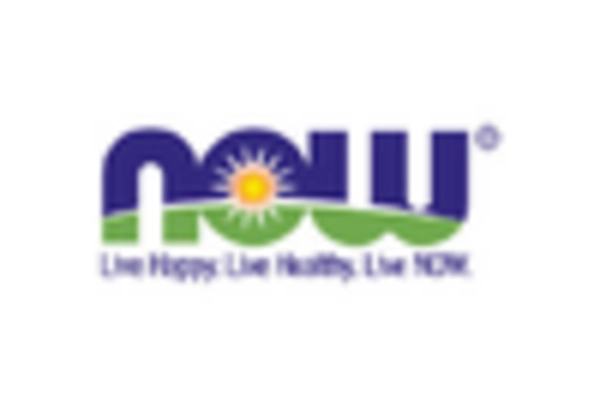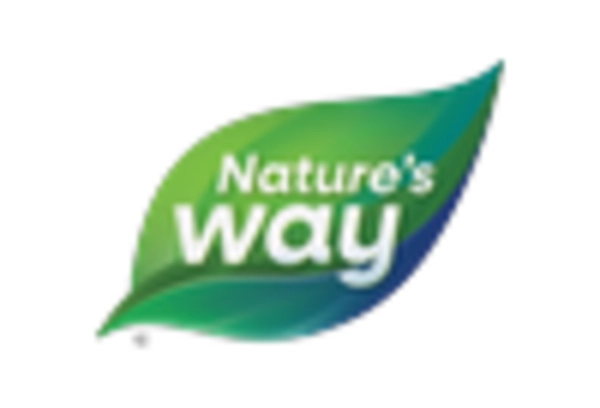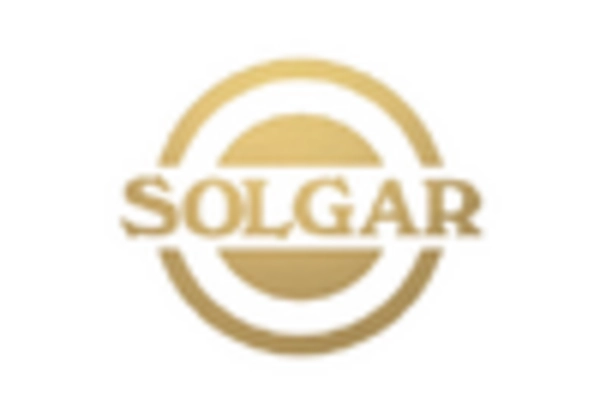Rising Health Consciousness
The increasing awareness of health and wellness among consumers appears to be a primary driver for the botanical supplement Market. As individuals become more informed about the benefits of natural ingredients, there is a noticeable shift towards botanical supplements as alternatives to synthetic products. This trend is reflected in market data, which indicates that the demand for herbal supplements has surged, with a projected growth rate of approximately 8% annually. Consumers are actively seeking products that promote overall well-being, immunity, and mental health, thereby propelling the Botanical Supplement Market forward. The emphasis on preventive healthcare further supports this trend, as individuals prioritize natural solutions to enhance their quality of life.
Evolving Consumer Preferences
Consumer preferences are evolving, with a marked inclination towards plant-based and organic products. This shift is significantly influencing the Botanical Supplement Market, as more individuals opt for supplements derived from natural sources. Market Research Future suggests that the organic segment of the botanical supplements is expected to witness substantial growth, potentially reaching a valuation of several billion dollars in the coming years. The rise of veganism and vegetarianism also contributes to this trend, as consumers seek supplements that align with their dietary choices. Additionally, the demand for transparency in ingredient sourcing and product formulation is becoming increasingly important, prompting manufacturers to adapt their offerings to meet these changing preferences.
Regulatory Support and Standardization
Regulatory support and standardization are becoming increasingly relevant in the Botanical Supplement Market. Governments and regulatory bodies are recognizing the importance of establishing guidelines to ensure product safety and efficacy. This trend is likely to enhance consumer trust and confidence in botanical supplements, potentially leading to increased market growth. The establishment of clear labeling requirements and quality standards may also encourage manufacturers to invest in research and development, fostering innovation within the industry. As regulations evolve, the Botanical Supplement Market could witness a more structured environment, promoting fair competition and ensuring that consumers have access to high-quality products.
Growing Interest in Holistic Health Approaches
The growing interest in holistic health approaches is significantly influencing the Botanical Supplement Market. Consumers are increasingly seeking products that support not just physical health but also mental and emotional well-being. This trend aligns with the principles of holistic health, which emphasizes the interconnectedness of body, mind, and spirit. Market data indicates that supplements targeting stress relief, mood enhancement, and cognitive function are gaining traction, reflecting a broader shift towards comprehensive wellness solutions. As individuals prioritize a balanced lifestyle, the demand for botanical supplements that address various aspects of health is likely to rise, further propelling the growth of the Botanical Supplement Market.
Technological Advancements in Extraction Methods
Technological advancements in extraction methods are playing a crucial role in enhancing the quality and efficacy of botanical supplements. Innovations such as supercritical CO2 extraction and cold-pressing techniques are enabling manufacturers to preserve the bioactive compounds in plants more effectively. This improvement in extraction technology is likely to bolster the Botanical Supplement Market by providing higher-quality products that meet consumer expectations. Furthermore, these advancements may lead to the development of new formulations and product lines, catering to diverse consumer needs. As a result, the market could experience an influx of innovative botanical supplements that appeal to health-conscious individuals seeking potent and effective natural solutions.


